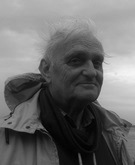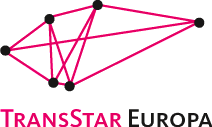 Foto © Elenmari Pletikos Olof, Premantura 2014
Foto © Elenmari Pletikos Olof, Premantura 2014
Klaus Detlef Olof was born in 1939 in Saxony-Anhalt. He works as a literary translator from Slovenian, Croatian, Bosnian and Serbian into German. Both in Hamburg and Sarajevo he studied Slavic languages and literatures before he started to teach at the University of Klagenfurt in 1973 and later also at the Universities of Graz and Vienna. Today he lives in Zagreb. In 1991 the Austrian State Prize for literary translation was given to him. He translated a variety of well-known authors including France Prešeren, Miroslav Krleža, Miljenko Jergović, Zoran Ferić, Dževad Karahasan and Dragan Velikić.
We arranged a meeting with Klaus Detlef Olof in Graz. Over a cup of coffee we interviewed him about his professional life as a translator. In great detail Olof answered our questions about his beginning, his professional career, his approach and translation strategies.
He told us that it was rather an accidence that he ended up in translating literature. His first translation was from Slovenian into German, a poetry anthology called “Na zeleni strehi vetra/ Auf dem grünen Dach des Windes“. As an assistant lecturer at the University of Klagenfurt he was not meant to translate the Slovenian poetries but to collect the originals and their translations for the anthology. When he realized the bad quality of the translated poetries, he started to re-translate them by himself so that in the end he had re-translated all of them.
After we had talked about his first years as a translator we asked Olof about existing nationalistic thinking among the authors he had translated into German. He replied that in one case he had rejected the offer to translate a Serbian author’s work due to the author’s previous nationalistic statements. Olof noted that, however, the majority of Croatian, Bosnian and Serbian authors do not think in national borders but they do see their neighbours as their brothers.
Since Croatia, Bosnia and Serbia are not any more united Yugoslavia and the languages are officially independent from each others, translators are sometimes facing difficulties. We asked Olof if he has any proper solution how to handle, for example, a Bosnian sentence appearing in a Croatian novel. How does he mark the linguistic mixture in the German translation? He admitted that there is no general solution but that it depends always from the every single book. He is currently facing a similar problem in transferring a Slovenian dialect that is used in a novel into his German translation.
Olof shared with us also his rather pragmatic approach to work. He explained that for him, as the translator, the priority is not to read the whole book before starting to translate it. Firstly, it is a question of lack of time and, secondly, knowing the contents of a novel is not that important for a translator. He claims that for him it is essentially to keep the reader’s inexperience while doing the first rough translation.
Our last question was about the fascination of literary translation. Why is he still fascinated by translating? Olof made clear that, to him, there are several reasons for being a translator. In the beginning, he felt mostly flattered by translation offers with which he earned considerable success. As a second reason he mentioned that he felt some kind of obligation to return to Bosnia what Bosnia gave to him (study period in Sarajevo, wife, children, relatives, friends). And last but not least, there is this sporting ambition – the great challenge to transfer a novel into another culture – which lasts from the very beginning until now.
We thank Klaus Detlef Olof for taking the time to share his experience with us!
The inverview was conducted by Evelyn Sturl and Paul Gruber.
Relying on the structure and methodology of classical and postclassical [...]
For further information on translation, the TransStar project and the [...]
Relying on the structure and methodology of classical and postclassical [...]
Sir or Madam, In co-operation with KulturKontakt Austria, the Austrian [...]
Five short films with translations (videopoetry) were made as part [...]
Translating Cube: Six Sides of European Literature and Translation Berlin, [...]
Programme (PDF)
Five short films with translations (videopoetry) were made as part [...]
Translating Cube: Six Sides of European Literature and Translation Berlin, [...]
Programme (PDF)
Translating Cube in Tübingen Reinold Hermanns: SWR2 Journal am Mittag, [...]
Being Exchanged: Between Paris, Stuttgart and Ivano-Frankivsk Yuri Andrukhovytsh, Lubomír [...]
Five short films with translations (videopoetry) were made as part [...]
Bookstore: http://www.edition-fototapeta.eu/geschichten-erzaehlen
More here (PDF). Bookstore: https://knjigarna.ff.uni-lj.si/si/izdelek/1623/pet-poti-do-prevoda/
Five short films with translations (videopoetry) were made as part [...]
Bookstore: http://www.edition-fototapeta.eu/geschichten-erzaehlen
More here (PDF). Bookstore: https://knjigarna.ff.uni-lj.si/si/izdelek/1623/pet-poti-do-prevoda/
Translating Cube: Six Sides of European Literature and Translation Berlin, [...]
Programme (PDF)


